Online Booklet with Detailed Program
Program Overview for CPS-IoT Week 2025
| May 6, 2025 | May 7, 2025 | May 8, 2025 | May 9, 2025 | |
|
Breakfast & Registration 7:30am – 9:00am @ Pacific Room |
Breakfast & Registration 7:30am – 8:30am @ Pacific Room |
Breakfast & Registration 7:30am – 8:30am @ Pacific Room |
Breakfast 7:30am – 9:00am @ Pacific Room |
|
|
Opening Remarks 8:30am – 9:00am @ Crystal Cove Auditorium |
Inaugural CPS-IoT Debate 8:30am – 9:00am @ Crystal Cove Auditorium |
|||
|
Workshops/Tutorials/Competitions/PhD Forum 9:00am – 10:30am |
Keynote: Dr. Steve Chien (JPL) 9:00am – 10:00am @ Crystal Cove Auditorium |
Inaugural CPS-IoT Debate 9:00am – 10:00am @ Crystal Cove Auditorium |
Keynote: Prof. Sanjit A. Seshia (UC Berkeley) 9:00am – 10:00am @ Crystal Cove Auditorium |
|
|
Coffee Break 10:30am – 11:00am @ Pacific Room |
Coffee Break 10:00am – 10:30am @ Pacific Room |
Coffee Break 10:00am – 10:30am @ Pacific Room |
Coffee Break 10:00am – 10:30am @ Pacific Room |
|
|
Workshops/Tutorials/Competitions/PhD Forum 11:00am – 12:30pm |
Session 1: HSCC/ICCPS/RTAS/SenSys 10:30am – 12:00pm |
Session 3: HSCC/ICCPS/RTAS/SenSys 10:30am – 12:00pm |
Session 6: HSCC/ICCPS/RTAS/SenSys 10:30am – 12:00pm |
|
|
Lunch 12:30pm – 2pm @ Pacific Room |
Lunch 12:00pm – 1:30pm @ Pacific Room |
Lunch 12:00pm – 1:30pm @ Pacific Room N2Women Event 12:00pm – 1:30pm @ Emerald Bay A |
Lunch 12:00pm – 1:30pm @ Pacific Room |
|
|
Workshops/Tutorials/Competitions/PhD Forum 2:00pm – 3:30pm |
Session 2: HSCC/ICCPS/RTAS/SenSys 1:30pm – 3:00pm |
Session 4: HSCC/ICCPS/RTAS/SenSys 1:30pm – 3:00pm |
Session 7: HSCC/ICCPS/RTAS/SenSys 1:30pm – 3:00pm |
|
|
Coffee Break 3:30pm – 4:00pm @ Pacific Room |
Coffee Break 3:00pm – 3:30pm @ Pacific Room |
Coffee Break 3:00pm – 3:30pm @ Pacific Room |
Coffee Break 3:00pm – 3:30pm @ Pacific Room |
|
|
Workshops/Tutorials/Competitions/PhD Forum 4:00pm – 5:30pm |
Brief Presentations: HSCC/ICCPS/RTAS/SenSys 3:30pm – 5:30pm |
Session 5: HSCC/ICCPS/RTAS/SenSys 3:30pm – 5:30pm |
Session 8: HSCC/ICCPS/RTAS/SenSys 3:30pm – 5:30pm |
|
|
Welcome Reception 6:00pm – 7:30pm @ Engineering Plaza |
Posters/Demos and Reception 5:30pm – 7:00pm Posters @ Gateway Plaza Upper and Lower Demos @ Moss Cove and Woods Cove |
Banquet and Awards Ceremony 6:00pm – 9:30pm @ Harborside Restaurant |
||
|
Conference Session Locations: HSCC – Emerald Bay A | ICCPS – Emerald Bay B | RTAS – Emerald Bay CDE | SenSys – Crystal Cove Auditorium |
||||
|
Workshop Locations: FMSys – Doheny B | Sensors S&P – Crescent AB | RAGE – Moss B | CAADCPS – Emerald DE | MoVe4SPS - Woods Cove C | HumanSys - Doheny Beach A | FACCT - Woods Cove A | ENSys - Doheny D | DESTION - Doheny C | AutoDay - Emerald Bay C | Brick - Moss Cove A | EthicsCPS - Moss Cove A | ConformalPred - Emerald Bay A | PhD Forum - Emerald Bay A | Scenic - Emerald Bay B | StudentComp - Crescent Bay CD | PublicCPSData - Woods Cove B | |
||||
CPS-IoT Week 2025 Special Events
Welcome Reception [Sponsored by Samueli School of Engineering at UC Irvine]
Date: May 6, 2025, 6 pm - 7:30 pm
The CPS-IoT Week 2025 Welcome Reception will be held on the evening of May 6 at the Engineering Plaza. This will be a great opportunity to connect with fellow attendees, speakers, and organizers. The reception will also feature a special musical performance from E-SONIC! E-SONIC is the faculty band in the UCI Samueli School of Engineering comprised of professors from the Departments of Chemical and Biomolecular Engineering, Electrical Engineering and Computer Science, and Biomedical Engineering. The band’s ratio of enthusiasm to musicality is somewhat high, and they cover anything from engineering-themed favorites to crowd-pleasing sing-alongs.
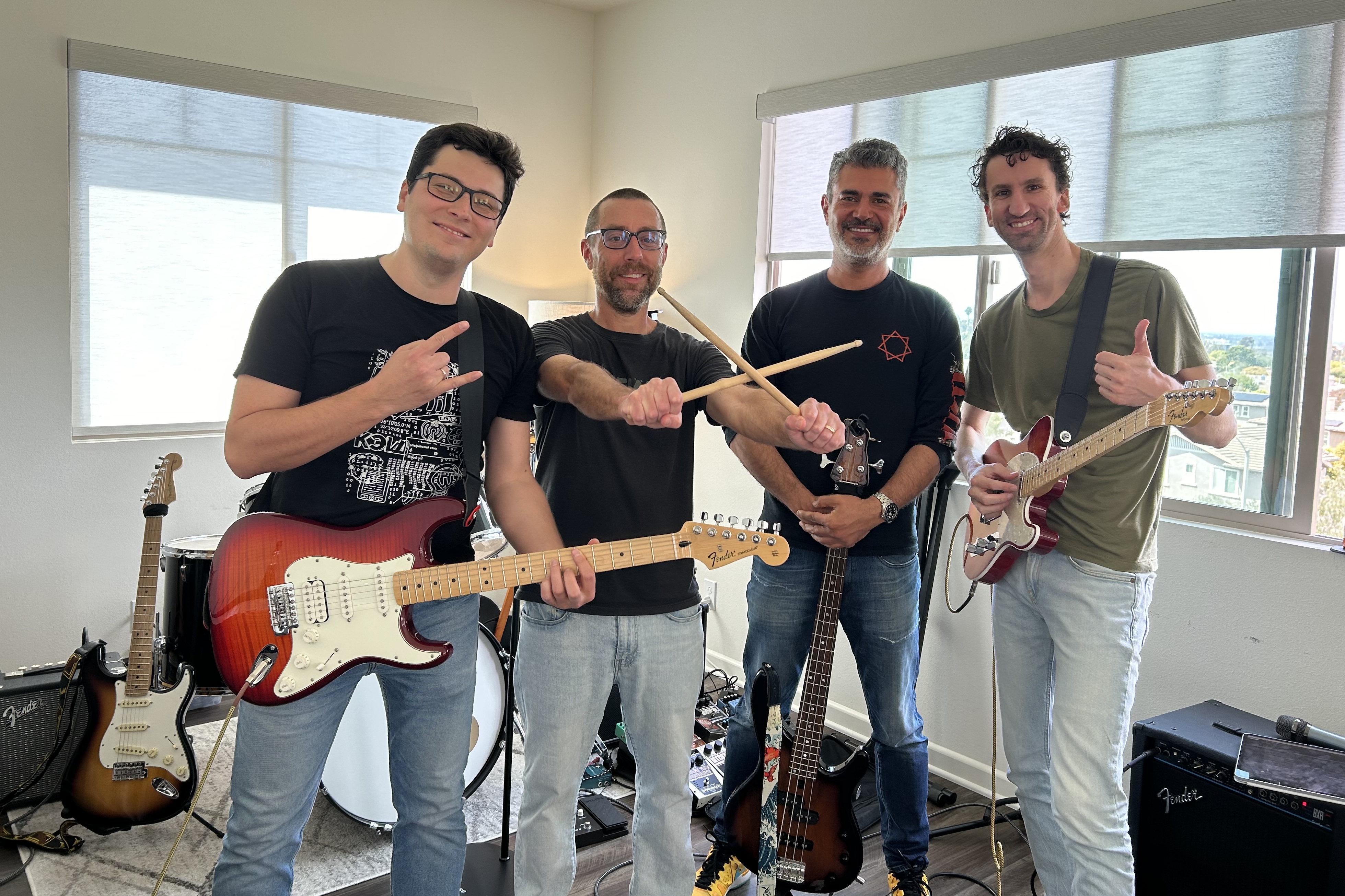
Keynote 1: Trusted AI on Mars
Date: May 7, 2025, 9 am - 10 am
Speaker: Dr. Steve Chien, Jet Propulsion Laboratory, NASA and California Institute of Technology
Abstract: In October 2023, the Onboard Planner (OBP) took control of the Perseverance rover on Mars, over 200 million miles from Earth. As of 29th January 2025, OBP has operated for 429 Martian days (sols) and has: executed over 7800 activities requested by scientists and engineers, driven over 12 kilometers, acquired over 70,000 images, and collected 4 rock core samples. In contrast to the traditional form of operations, where operators provide a rigid set of instructions for the rover, with OBP Perseverance revises its schedule an average of 16 times each day to stay responsive in a dynamic Martian environment where things don’t always go as expected. This flexibility allows the mission to manage resources such as energy more efficiently and therefore accomplish more science.
In this talk, we discuss the approach to ensuring that a search-based AI system, specifically the Onboard Planner, would (1) achieve mission objectives; and critically (2) protect the rover, a multi-billion dollar one of a kind asset. We describe the “whole lifecycle” approach to developing trusted autonomy software for M2020, spanning: conception, design, analysis, prototyping, and testing. We then describe the incremental rollout and training to smooth the transition to operations with increased onboard autonomy. Next we discuss how the OBP software has performed. Finally we describe the even greater challenges of autonomy in future missions to hunt for life beyond Earth.
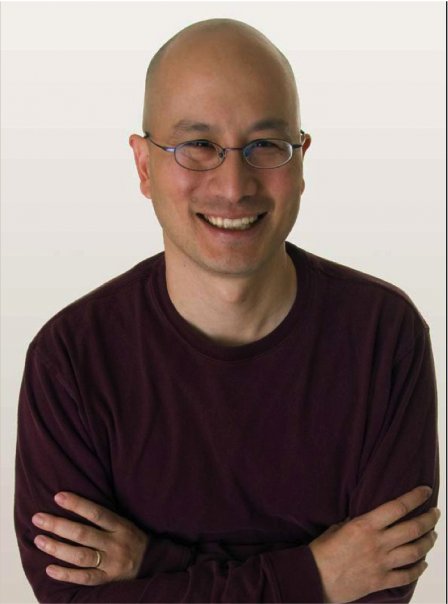
Bio: Steve Chien is a Technical Fellow in Artificial Intelligence and Co-head of the Artificial Intelligence Group at the Jet Propulsion Laboratory, California Institute of Technology. He has spent decades deploying AI/Autonomy to numerous space missions including: Earth Observing One, Sensorweb, ESA’s Rosetta Orbiter, and M2020. He has been awarded four NASA Medals in 1997, 2000, 2007, and 2015 for development and deployment of AI technologies for space missions. He has supported numerous government bodies including the Defense Science Board and the Air Force Scientific Advisory Board. He was appointed by Congress to the National Security Commission on Artificial Intelligence (2018-2021). He currently serves on the Army Science Board and as an Advisor to the Senate Defense Modernization Caucus.
Inaugural CPS-IoT Debate
Date: May 8, 2025, 9 am - 10 am
Framed around the motion “This House contends that the inherent complexity of modern engineering challenges renders exhaustive mathematical analysis overkill, and that an iterative, adaptive design approach should be prioritized—even for life-critical systems,” this session will feature structured arguments, audience participation, and live voting. With opening statements, cross-examination, and closing remarks from both teams, the debate aims to challenge assumptions, spark meaningful discussion, and engage the CPS-IoT Week community in one of the most pressing questions today.
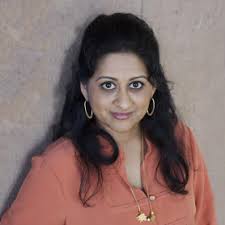
Nalini Venkatasubramanian is currently a Professor in the School of Information and Computer Science at the University of California Irvine. She has had significant research and industry experience in the areas of distributed systems, adaptive middleware, pervasive and mobile computing, cyberphysical systems, distributed multimedia and formal methods and has over 350 publications in these areas. As the Co-Director of the Center for Emergency Response Technologies at UC Irvine, Nalini’s recent research has focused on enabling resilient, sustainable and scalable observation and analysis of situational information from multiple input sources; dynamic adaptation of the underlying systems to enable information flow under massive failures and the scalable dissemination of rich notifications to populations. She is the recipient of the NSF Career Award, multiple Undergraduate Teaching Excellence Awards, and best paper awards. Prof. Venkatasubramanian has served in numerous steering and organizing committees of conferences on middleware, distributed computing,g and cyberphysical systems, and on the editorial boards of journals. She received her Ph.D in Computer Science from the University of Illinois in Urbana-Champaign. Her research has been supported by both government and industrial sources such as NSF, DHS, ONR, DARPA, NIST, NASA, DOE, Novell, Hewlett-Packard, and Nokia. Prior to joining UC Irvine, Nalini was a Research Staff Member at the Hewlett-Packard Laboratories in Palo Alto, California. Nalini is a Fellow of the IEEE and AAAS and an ACM Distinguished Engineer.
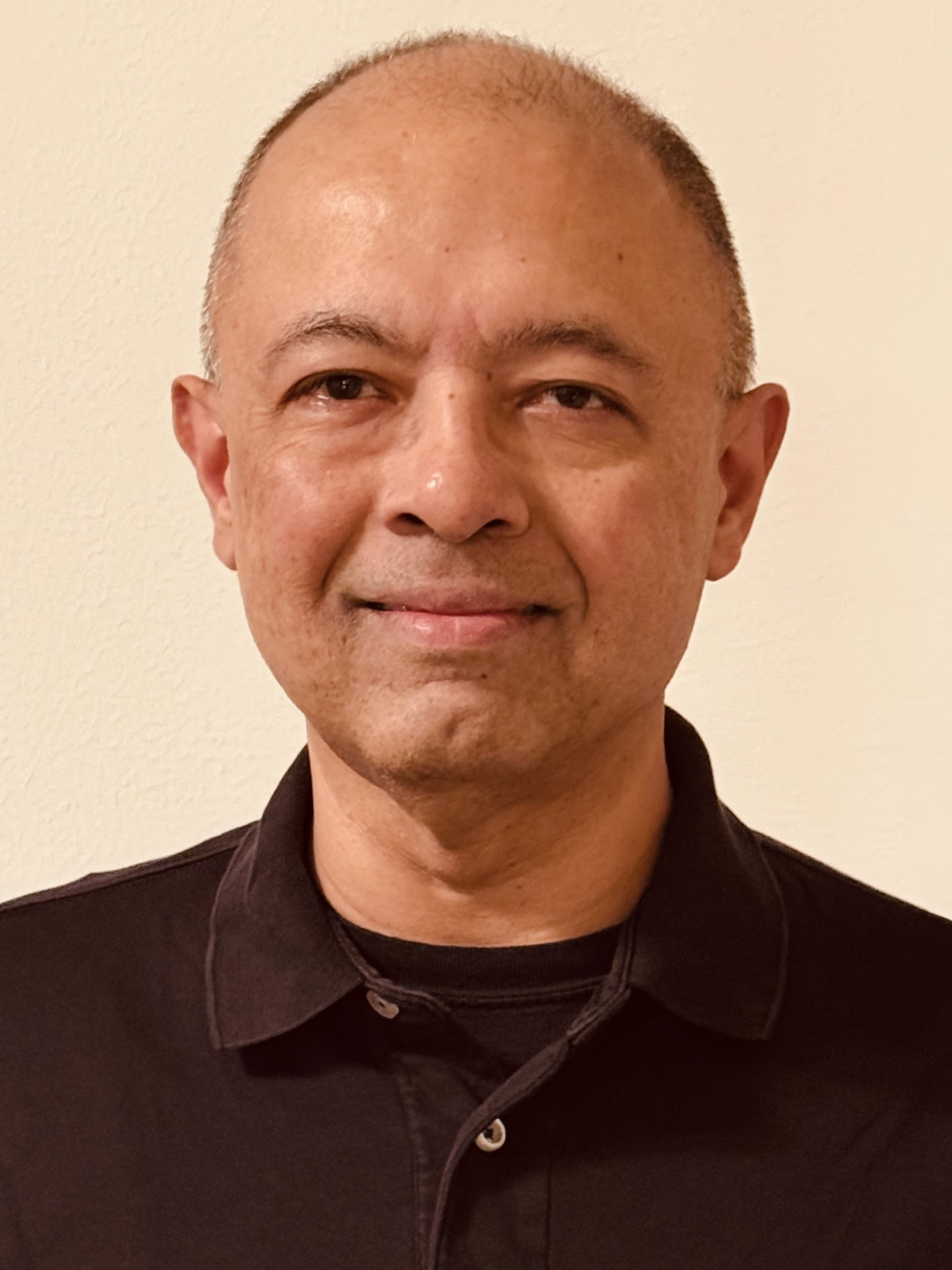 Prof. Mani Srivastava
Prof. Mani Srivastava
University of California, Los Angeles
Mani Srivastava is Distinguished Professor and Vice Chair at UCLA’s ECE Department with a joint appointment in the CS Department. His research is broadly in human-cyber-physical and IoT systems that are learning-enabled, resource-constrained, and trustworthy. It spans problems across the entire spectrum of applications, architectures, algorithms, and technologies in the context of systems and applications for mHealth, sustainable buildings, smart environments, etc. He is a Fellow of the ACM and the IEEE.
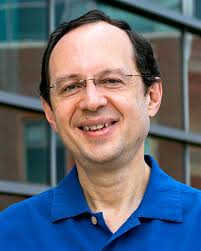 Prof. Tarek Abdelzaher
Prof. Tarek Abdelzaher
University of Illinois Urbana-Champaign
Tarek Abdelzaher received his Ph.D. in Computer Science from the University of Michigan in 1999. He is currently a Professor and Willett Faculty Scholar at the Department of Computer Science, the University of Illinois at Urbana-Champaign. He has authored/coauthored more than 400 refereed publications in real-time computing, CPS/IoT, distributed systems, intelligent networked sensing, machine learning, and control. He served as Editor-in-Chief of the Journal of Real-Time Systems for 15 years, and as Associate Editor of the IEEE Transactions on Mobile Computing, IEEE Transactions on Parallel and Distributed Systems, IEEE Embedded Systems Letters, the ACM Transaction on Sensor Networks, ACM Transactions on Internet Technology, ACM Transactions on Internet of Things, and the Ad Hoc Networks Journal. He chaired (as Program or General Chair) several conferences in his area including RTAS, RTSS, IPSN, Sensys, DCoSS, ICDCS, Infocom, and ICAC. Abdelzaher's research interests lie broadly in understanding and influencing performance and temporal properties of networked embedded, social, and software systems in the face of increasing complexity, distribution, and degree of interaction with an external physical environment. Tarek Abdelzaher is a recipient of the IEEE Outstanding Technical Achievement and Leadership Award in Real-time Systems (2012), the Xerox Award for Faculty Research (2011), as well as several best paper awards. He is a fellow of IEEE and ACM.
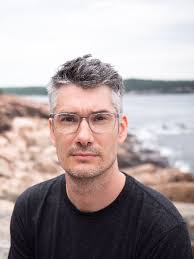 Prof. Anthony Rowe
Prof. Anthony Rowe
Carnegie Mellon University
Anthony Rowe is the Siewiorek and Walker Family Professor in the Electrical and Computer Engineering Department at Carnegie Mellon University. His research interests are in networked real-time embedded systems with a focus on wireless communication. He has worked on topics including large-scale sensing for critical infrastructure monitoring, indoor localization, building energy-efficiency, and technologies for microgrids. His most recent work has looked at connecting embedded sensing systems with mixed reality and spatial computing platforms. He is currently the director of the SRC/DARPA sponsored CONIX Research Center which spans seven Universities with the goal of exploring future distributed computing architectures. His past work has led to dozens of hardware and software systems, seven best paper awards, talks at venues like the World Economic Forum in Davos and several widely adopted open-source research platforms. He earned a Ph.D in Electrical and Computer Engineering from CMU in 2010, received the Lutron Joel and Ruth Spira Excellence in Teaching Award in 2013, the CMU CIT Early Career Fellowship and the Steven Fenves Award for Systems Research in 2015 and the Dr. William D. and Nancy W. Strecker Early Career chair in 2016.
 Dr. Georgios Fainekos
Dr. Georgios Fainekos
Toyota Motor North America R&D
Georgios Fainekos (aka Dr. Φ) is a Senior Principal Scientist at Toyota Motor North America R&D (within TRINA). He received his Ph.D. in Computer and Information Science from the University of Pennsylvania in 2008 where he was affiliated with the GRASP laboratory. He holds a Diploma degree (B.Sc. & M.Sc.) in Mechanical Engineering from the National Technical University of Athens (NTUA). Until 2022, he was a tenured faculty (Associate Professor) of Computer Science and Computer Engineering at the School of Computing and Augmented Intelligence (SCAI) at Arizona State University (ASU), where he led and worked on NSF, DARPA, AFRL, and industry funded projects (e.g., Intel, Toyota, Bosch). Among other professional roles, he has been a Postdoctoral Researcher at NEC Laboratories America in the System Analysis & Verification Group. He is currently working on Cyber-Physical Systems (CPS) and robotics with a focus on Automated Driving Systems (ADS). His technical expertise is on applied logic, formal verification & requirements, testing, control theory, artificial intelligence, and optimization. In 2013, Dr. Fainekos received the NSF CAREER award and the ASU SCIDSE Best Researcher Junior Faculty Award. He has also been recognized with the top 5% teacher award in 2019 and 2021. His research has received several awards and nominations (e.g., IEEE CASE 2021, IEEE ITSC 2019, ACM HSCC 2019, IEEE/ACM MEMOCODE 2019), and the 2008 Frank Anger Memorial ACM SIGBED/SIGSOFT Student Award. In 2016, Dr. Fainekos was the program co-Chair for the ACM International Conference on Hybrid Systems: Computation and Control (HSCC).
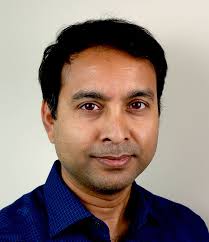 Prof. Sayan Mitra
Prof. Sayan Mitra
University of Illinois Urbana-Champaign
Sayan is a Professor, Associate Head of Graduate Affairs, and John Bardeen Faculty Scholar of ECE at UIUC. His research is on safe autonomy. His research group develops theory, algorithms, and tools for control synthesis and verification. Some of these have been patented and are being commercialized. Several former PhD students are now professors: Taylor Johnson (Vanderbilt), Parasara Sridhar Duggirala (NC Chapel Hill), and Chuchu Fan (MIT). Sayan received his PhD from MIT with Nancy Lynch. His textbook on verification of cyber-physical systems was published by MIT press in 2021. The group's work has been recognized with NSF CAREER Award, AFOSR Young Investigator Research Program Award, ACM SRC gold prize, IEEE-HKN C. Holmes MacDonald Outstanding Teaching Award (2013), Siebel Fellowship, and several best paper awards.
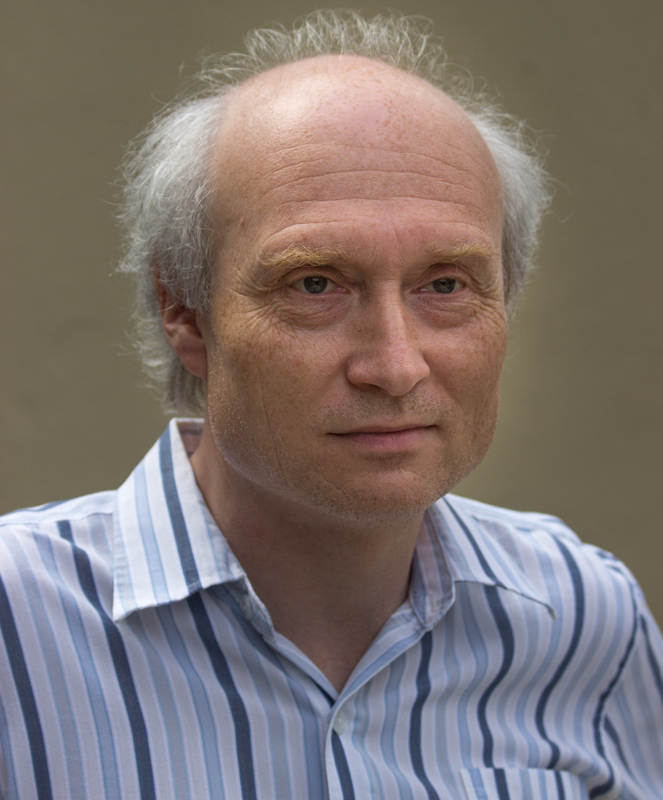 Prof. Oleg Sokolsky
Prof. Oleg Sokolsky
University of Pennsylvania
Oleg Sokolsky is a Research Professor of Computer and Information Science at the University of Pennsylvania and one of the founding members of the PRECISE Center. Oleg Sokolsky received M.Sc. in Computer Science in 1988 from St. Petersburg Technical University in St. Petersburg, Russia, and Ph.D. in Computer Science in 1996 from SUNY Stony Brook. After a short period as a research scientist in a small company, he joined University of Pennsylvania. His research interests include formal modeling and analysis of real-time and embedded systems, run-time verification, model-driven approaches to test generation. His work focuses on the application of formal methods to safety assurance for embedded and cyber-physical systems.
CPS-Iot Week Banquet
Date: May 8, 2025, 5:30 pm - 9:30 pm, Location: Harborside Restaurant
The CPS-IoT Week Banquet, bringing together all attendees, will take place at the Harborside restaurant,
located inside the historic Balboa Pavilion building built in 1906 with spectacular views of the harbor.
Buses start leaving the campus at 4:00 pm - Last bus leaves at 5:45. Banquet starts at 7:00 pm

Keynote 2: Towards a Design Flow for Verified AI-Based Autonomy
Date: May 9, 2025, 9 am - 10 am
Speaker: Professor Sanjit A. Seshia, University of California, Berkeley, USA
Abstract: Verified artificial intelligence (AI) is the goal of designing AI systems that have strong, ideally provable, assurances of correctness with respect to formally-specified requirements. This talk will review the main challenges to achieving Verified AI, and the progress the research community has made towards this goal. A particular focus will be on AI-based autonomous and semi-autonomous cyber-physical systems (CPS), and on the role of environment/world modeling throughout the design cycle. We argue for developing a new generation of design automation techniques, rooted in formal methods, to enable and support the routine development of high assurance AI-based autonomy. I will describe our work on formal methods for Verified AI-based autonomy, implemented in the open-source Scenic and VerifAI toolkits. The use of these tools will be demonstrated in industrial case studies involving deep learning-based autonomy in ground and air vehicles. We conclude with an outlook to the future of the Verified AI agenda.
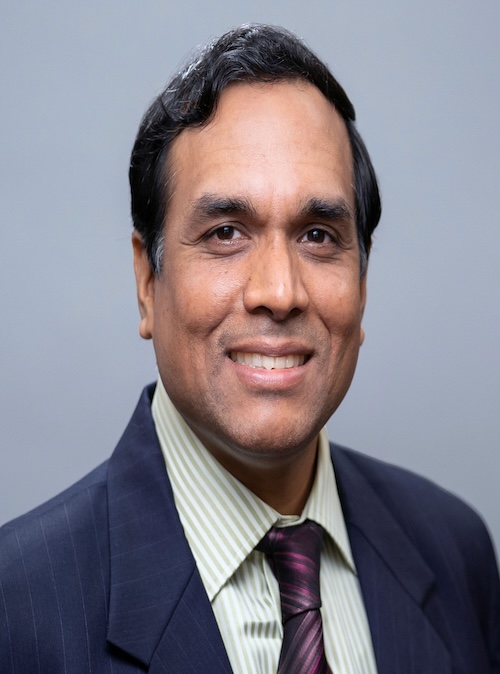
Bio: Sanjit A. Seshia is the Cadence Founders Chair Professor in the Department of Electrical Engineering and Computer Sciences (EECS) at the University of California, Berkeley. His research interests are in formal methods for dependable and secure computing, spanning the areas of cyber-physical systems (CPS), computer security, distributed systems, artificial intelligence (AI), machine learning, and robotics. He is co-author of a widely-used textbook on embedded, cyber-physical systems and has led the development of technologies for cyber-physical systems education based on formal methods. His awards and honors include a Presidential Early Career Award for Scientists and Engineers (PECASE), an Alfred P. Sloan Research Fellowship, the Frederick Emmons Terman Award for contributions to EECS education, the IEEE TCCPS Mid-Career Award, a Distinguished Alumnus Award from IIT Bombay, and the Computer-Aided Verification (CAV) Award for contributions to the foundations of SMT solving. He is a Fellow of the ACM and the IEEE.